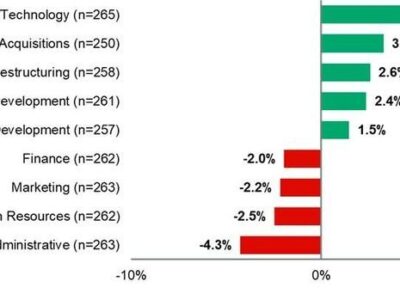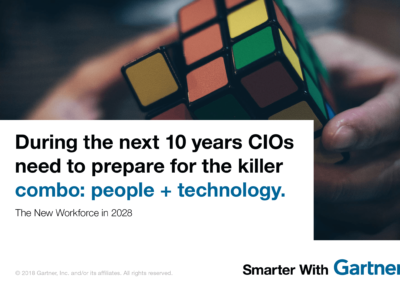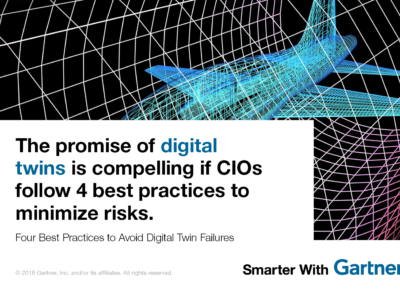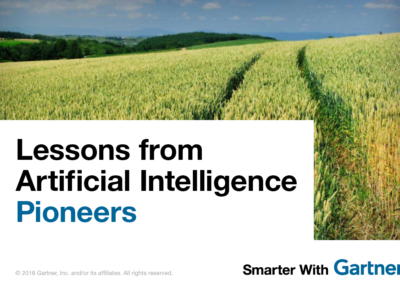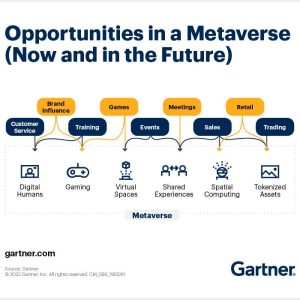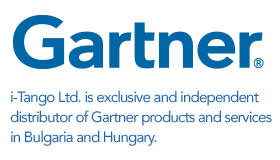Digital transformation is neither simple nor straightforward.
Contributor: Christy Pettey
Think of digital business and you might only think of technology. However, at its heart the digital revolution is about consumer behavior and business opportunity, not technology.
Daryl Plummer, vice president, chief of research and Gartner Fellow, said companies are responding to the digital revolution by crossing lines of business and entering new markets. So just as Google is experimenting with self-driving cars, for example, GE is delivering a software platform for connected devices and processes. While Walmart is experimenting with indoor positioning systems, Amazon continues to redefine the nature of digital commerce.
“The future of business will be defined by how well companies, organizations and governments use technology to engage with partners and customers across a wide range of digitalized processes,” said Mr. Plummer. “Technologies that use the cloud, analytics and smart machines present obvious opportunities to reshape how people and companies work but the savvy CIO will also need to understand, and embrace, unfamiliar concepts.”
Business algorithms that rise above simple computing routines will require IT departments to let go of control systems and process specifications. The more far-reaching concept of “digital humanism,” which proposes that human desires and aesthetics should play a leading role in technology design and use, will also require businesses and IT departments to design social- and people-driven solutions.
Coming to Grips with Digital Business
Coming to grips with the “how” of digital business through algorithms and digital humanism requires a willingness to take a different approach to decision making and a readiness to take risks, such as exposing core business algorithms to partners, and even customers.
The future of business will be defined by how well companies, organizations and governments use technology to engage with partners and customers across a wide range of digitalized processes
Gartner introduced the concept of algorithmic business in 2015 to describe the next stage of digital business. It also implies a next stage in organizational discipline as well. In this next stage, digital business will draw on the economics of connections — the creation of value from the increased density of interactions between “things,” people and businesses in interrelated social, information and computer networks.
Together, the rise of advanced analytics, the Internet of Things (IoT), and mainstream adoption of big data technologies and initiatives create both the raw material and the intelligence that algorithms can exploit. By 2018, over half of large organizations globally will compete using advanced analytics and proprietary algorithms, causing the disruption of entire industries.
A Humanistic-based Approach
The technology perspective that has long dominated IT system design is automation. But the relationship between technology and people is becoming both more intimate and more complex. This evolution calls for digital humanism.
“Digital humanism promotes a different mode of thinking,” said Mr. Plummer. “A good humanistic design would place the desires and needs of humans ahead of the most convenient or most accurate solution. By 2017, 40 percent of organizations will place humanistic-based approaches and architectures at the center of their solution designs. They will accomplish this by introducing processes designed to observe human behavior, rather than specify requirements.”
Gartner clients can read more in “Predicts 2016: Algorithms Take Digital Business to the Next Level.” This research is part of the Gartner Special Report “Explore Algorithmic Business to Drive Differentiation” which is a compilation of research exploring the steady emergence of algorithms into the limelight and the new opportunities they expose and challenges they pose for business and IT leaders.
Additional analysis on digital business trends will be provided during Gartner Symposium/ITxpo, the world’s most important gathering of CIOs and other senior IT executives. IT executives rely on these events to gain insight into how their organizations can use IT to overcome business challenges and improve operational efficiency. Follow news and updates from the events on Twitter using #GartnerSYM.
Upcoming dates and locations for Gartner Symposium/ITxpo 2016 include:
September 26-28, Cape Town, South Africa
October 16-20, Orlando, Florida
October 24-27, Sao Paulo, Brazil
October 24-27, Gold Coast, Australia
November 6-10, Barcelona, Spain
November 15-18, Goa, India


